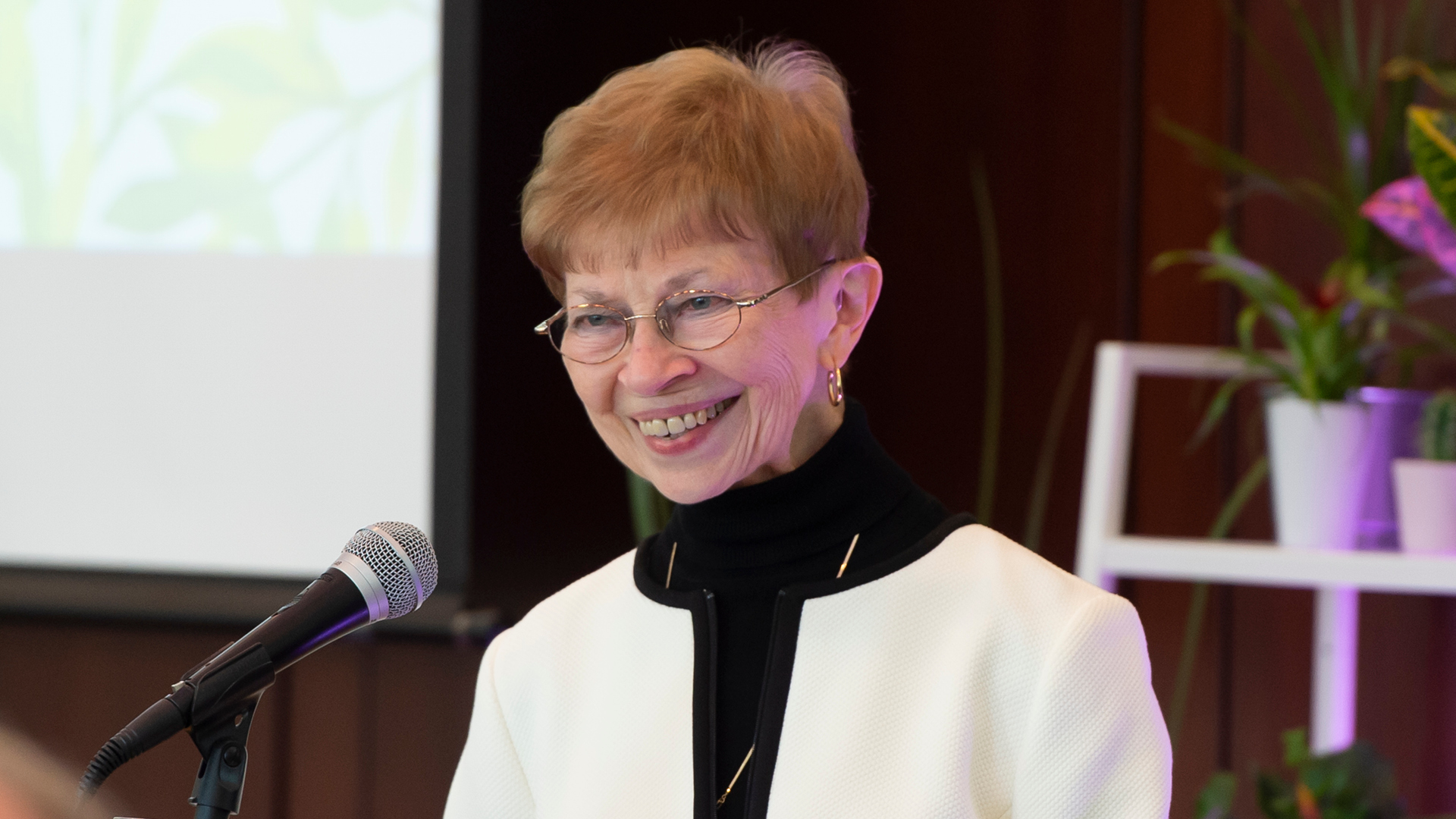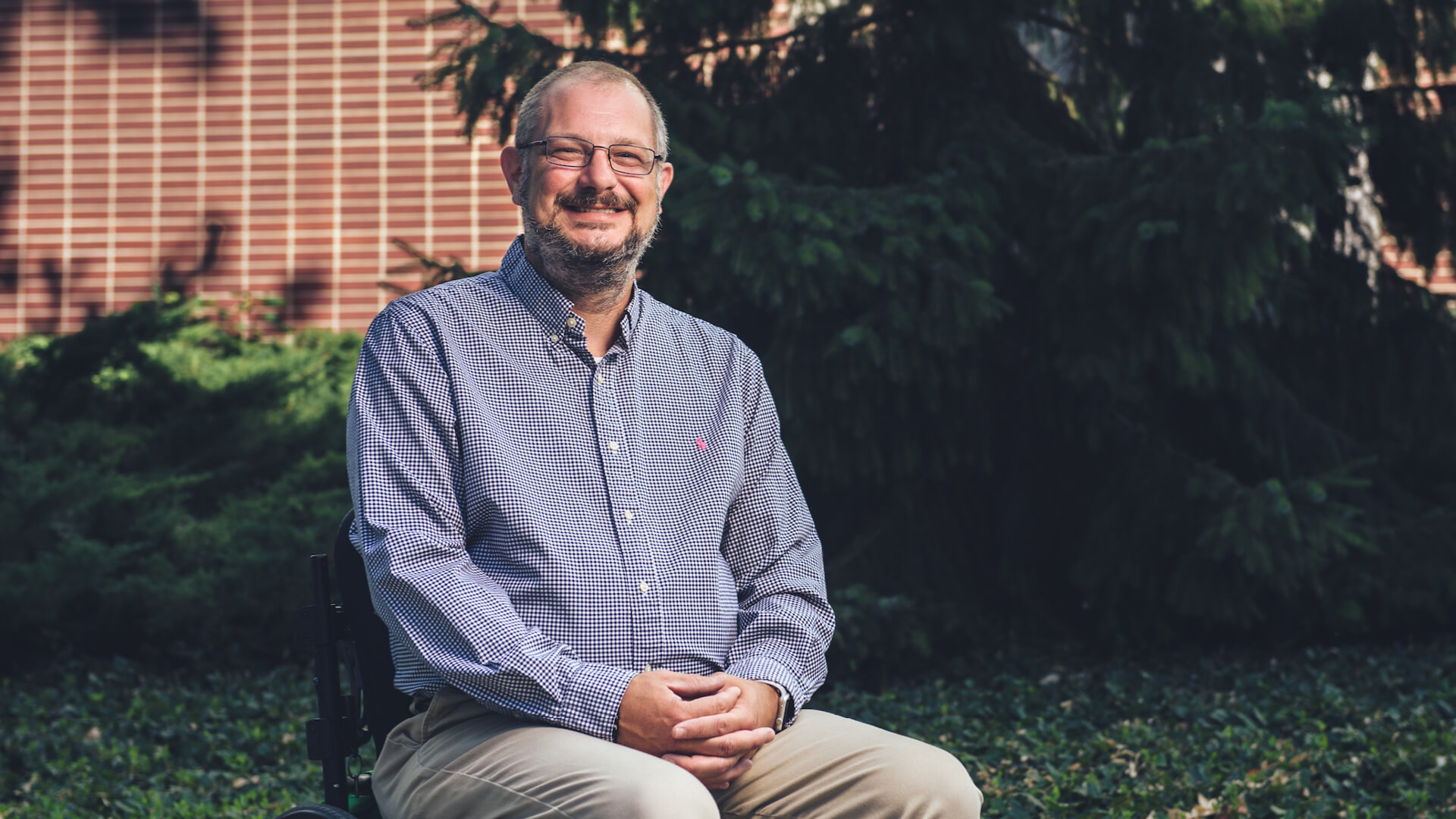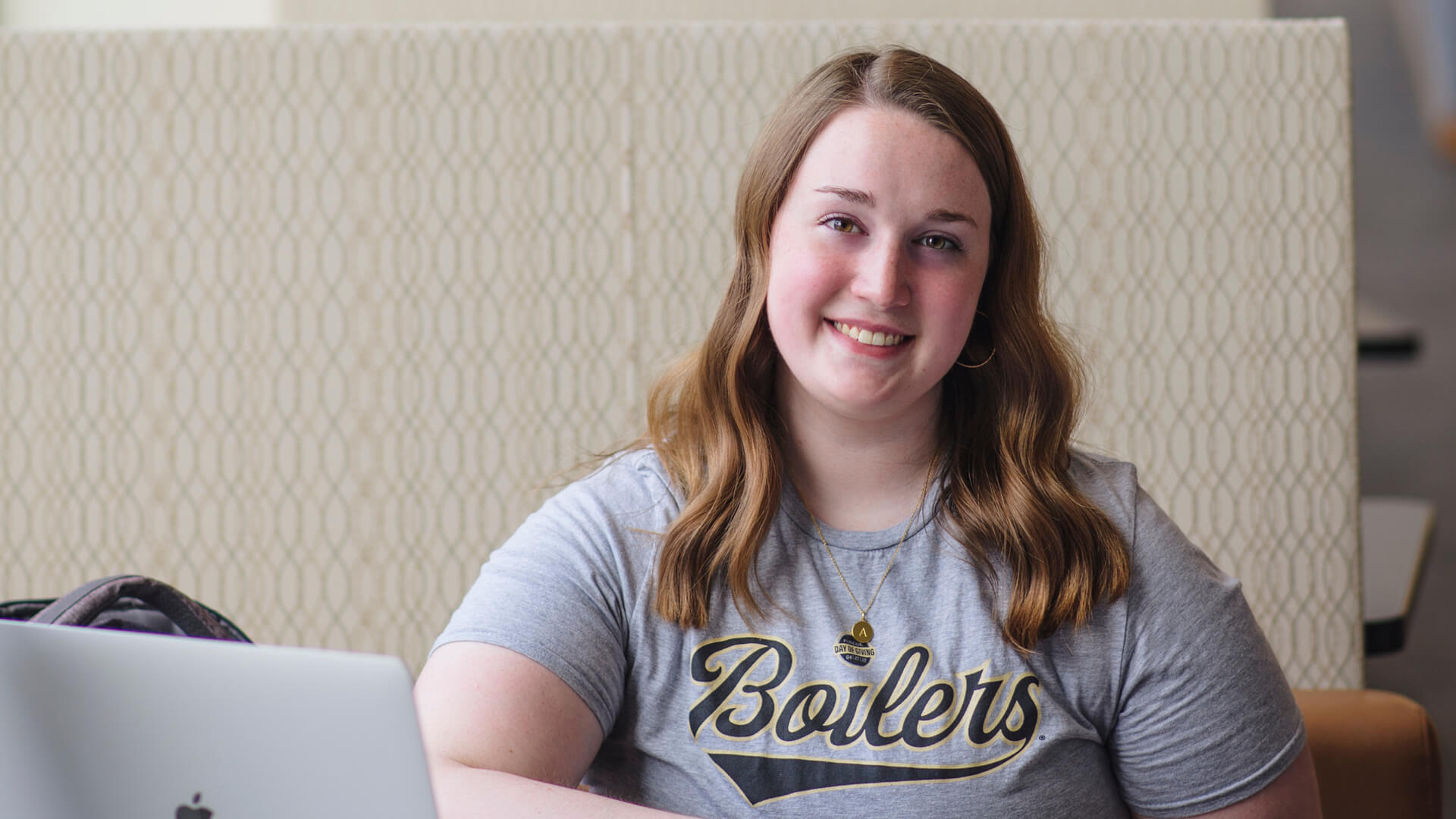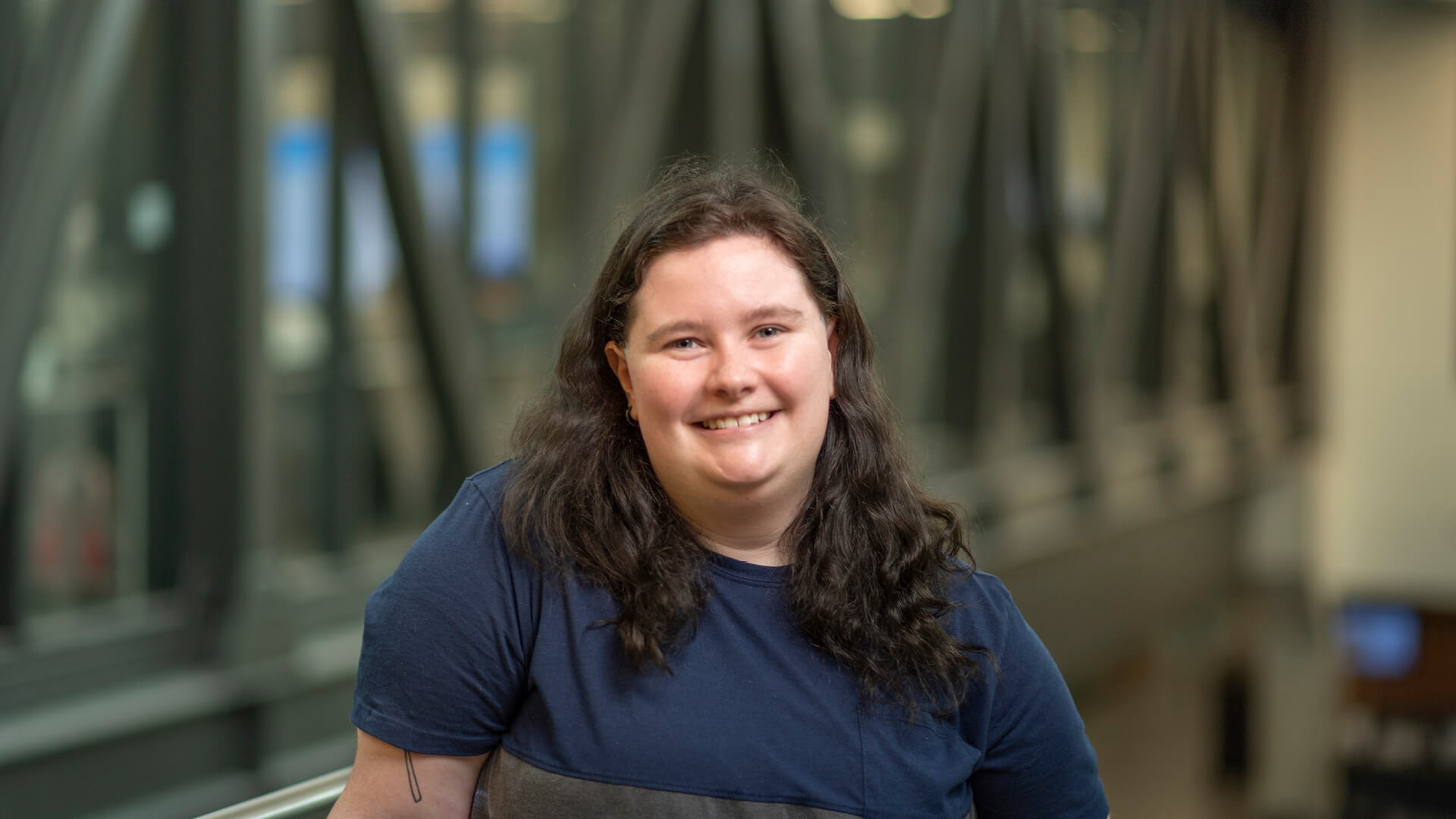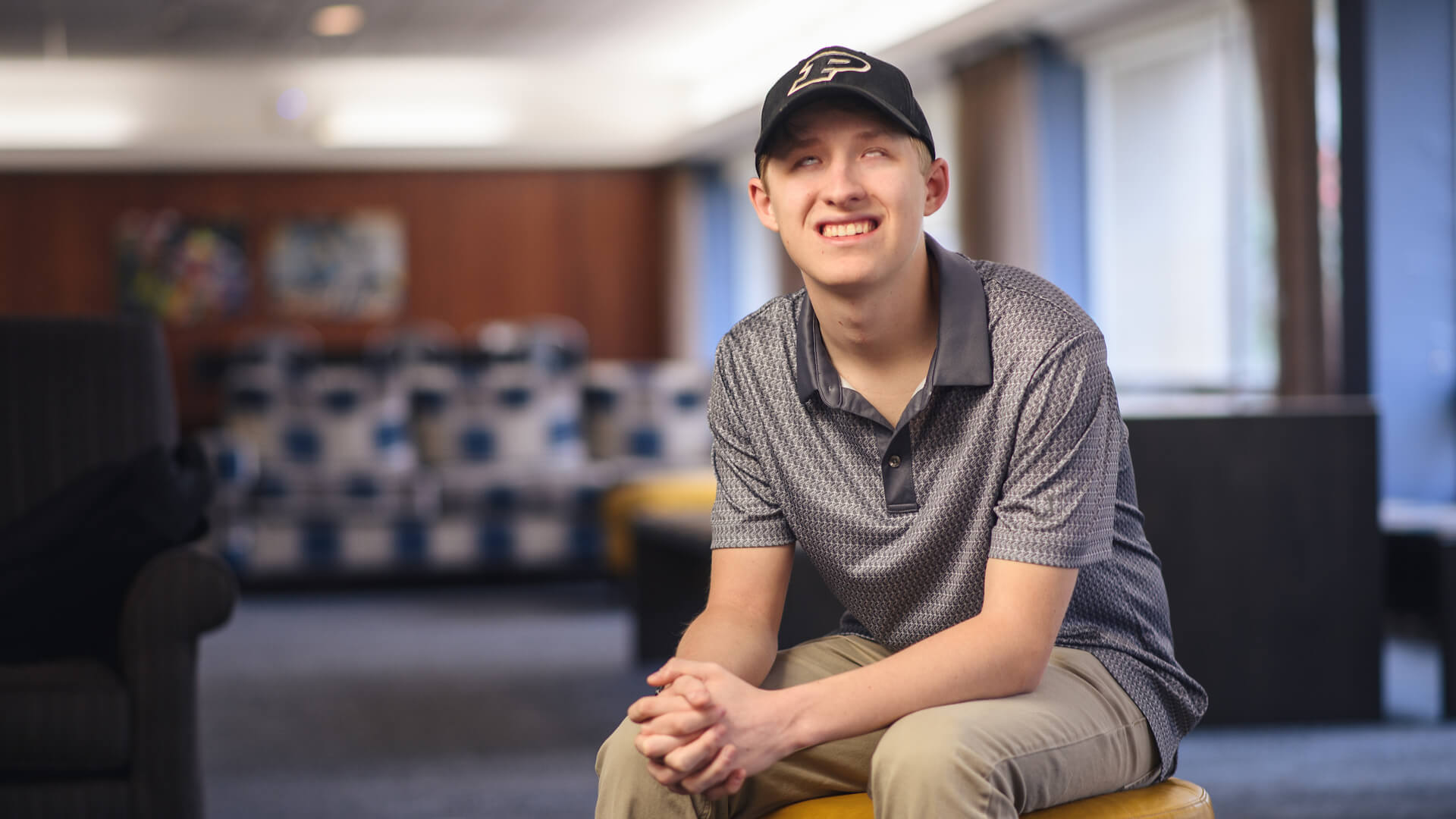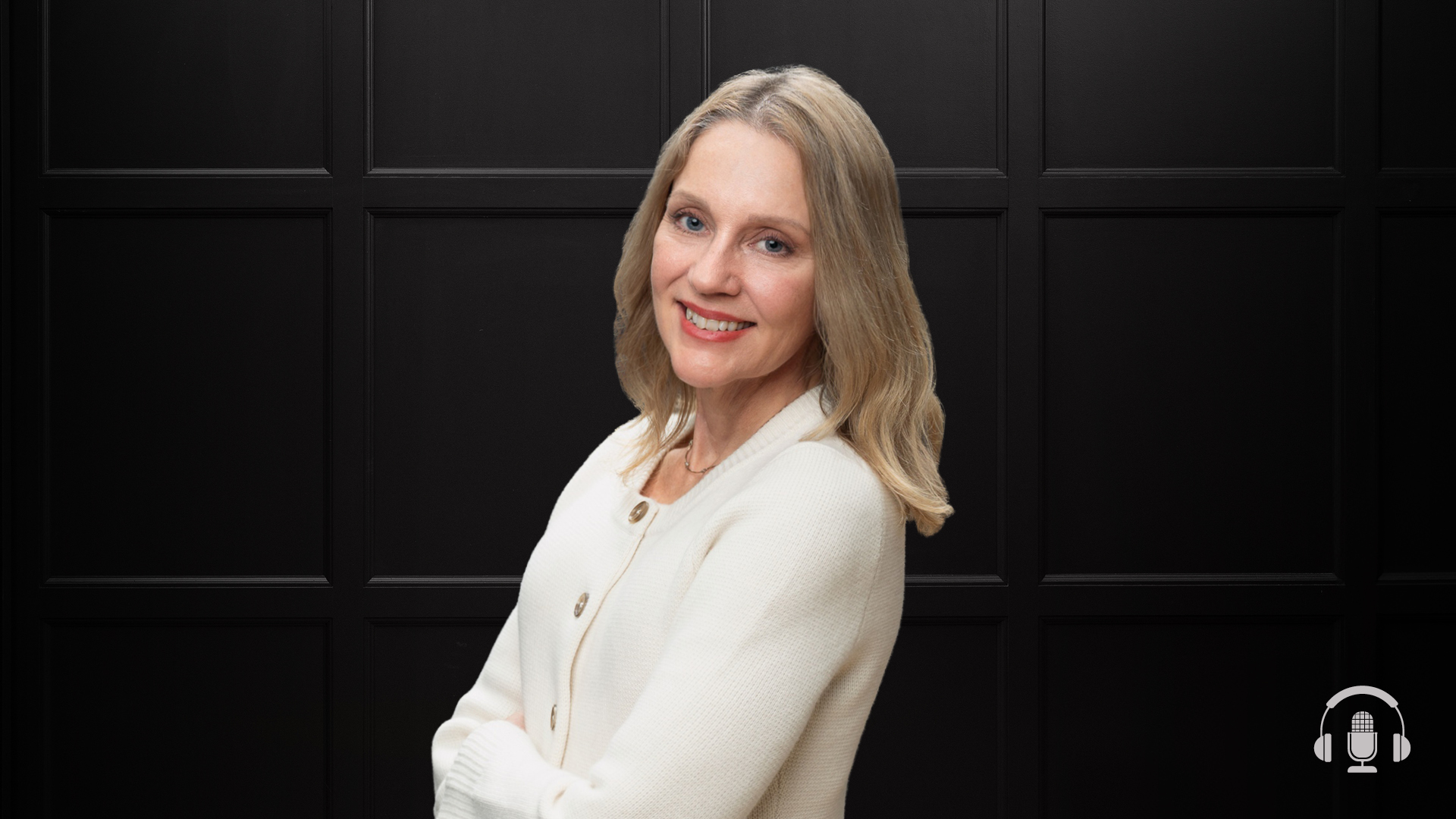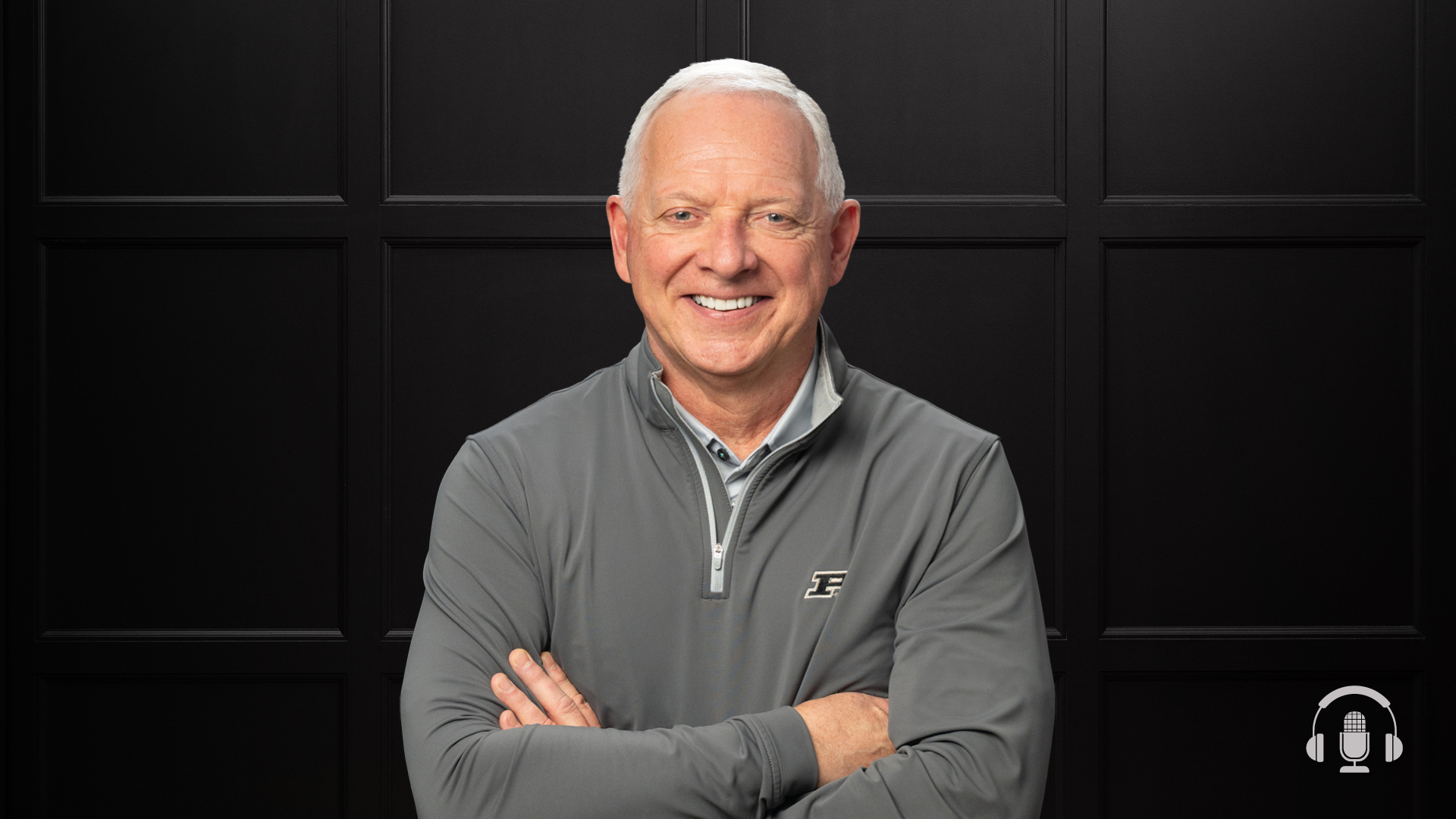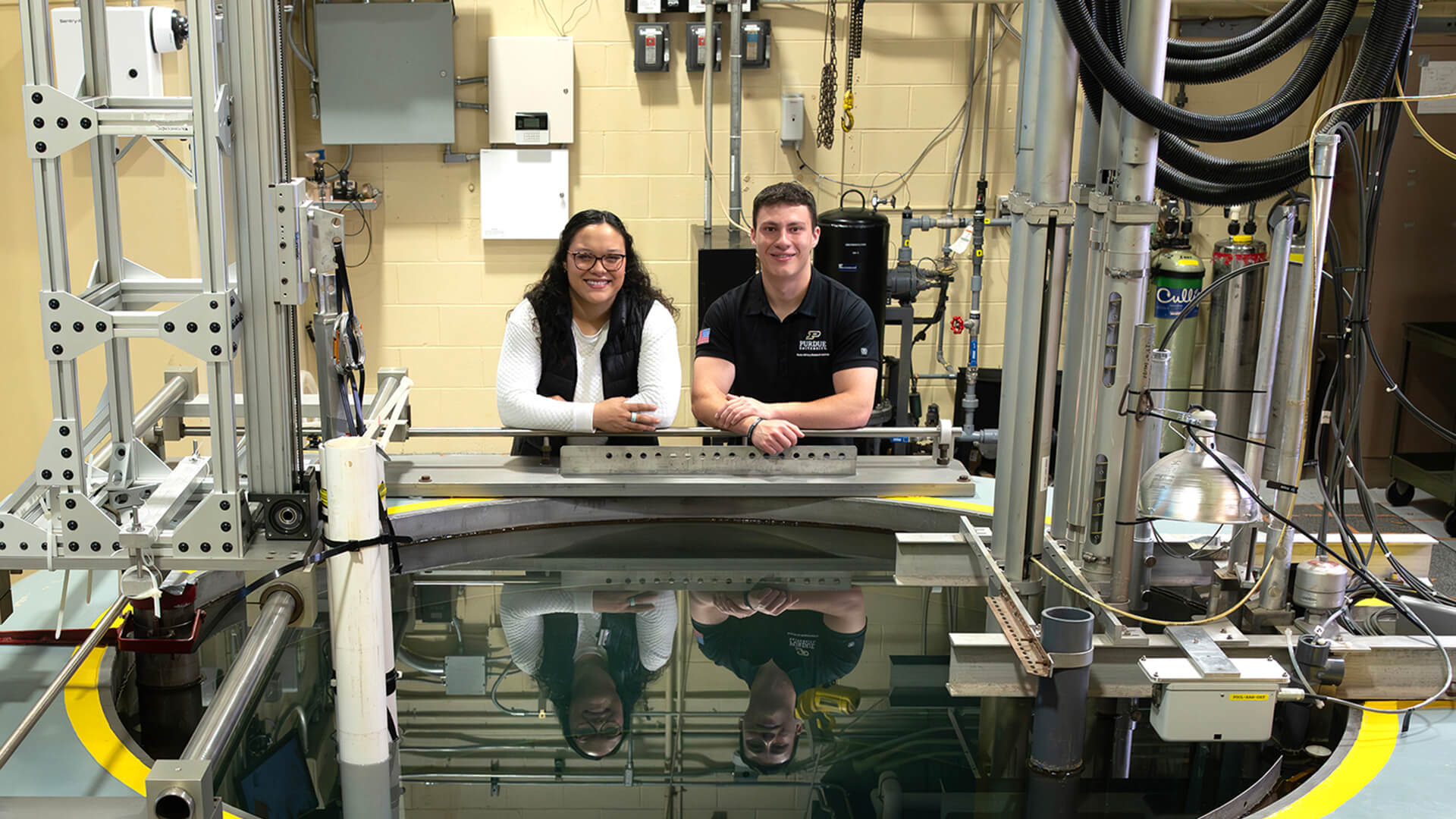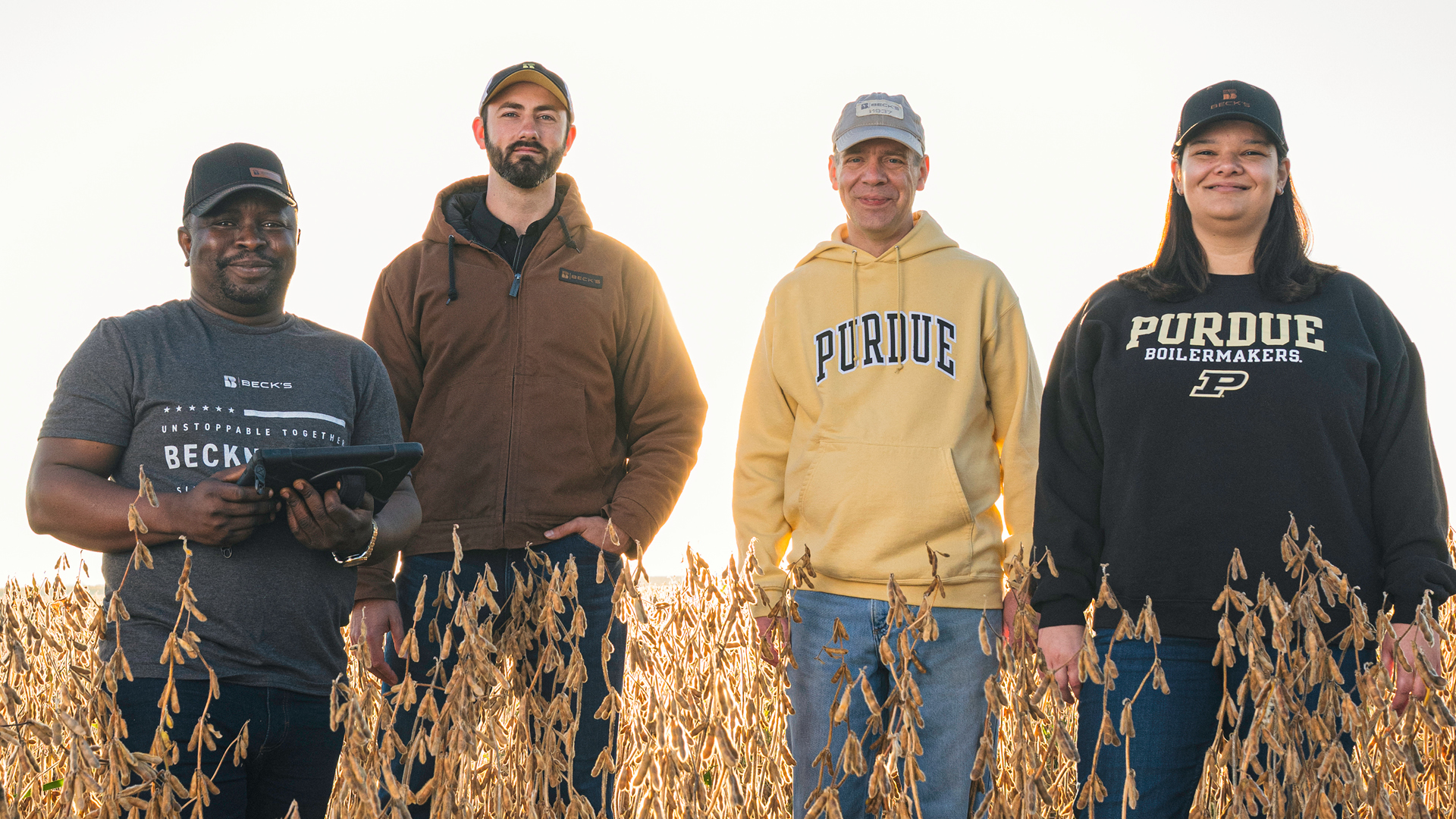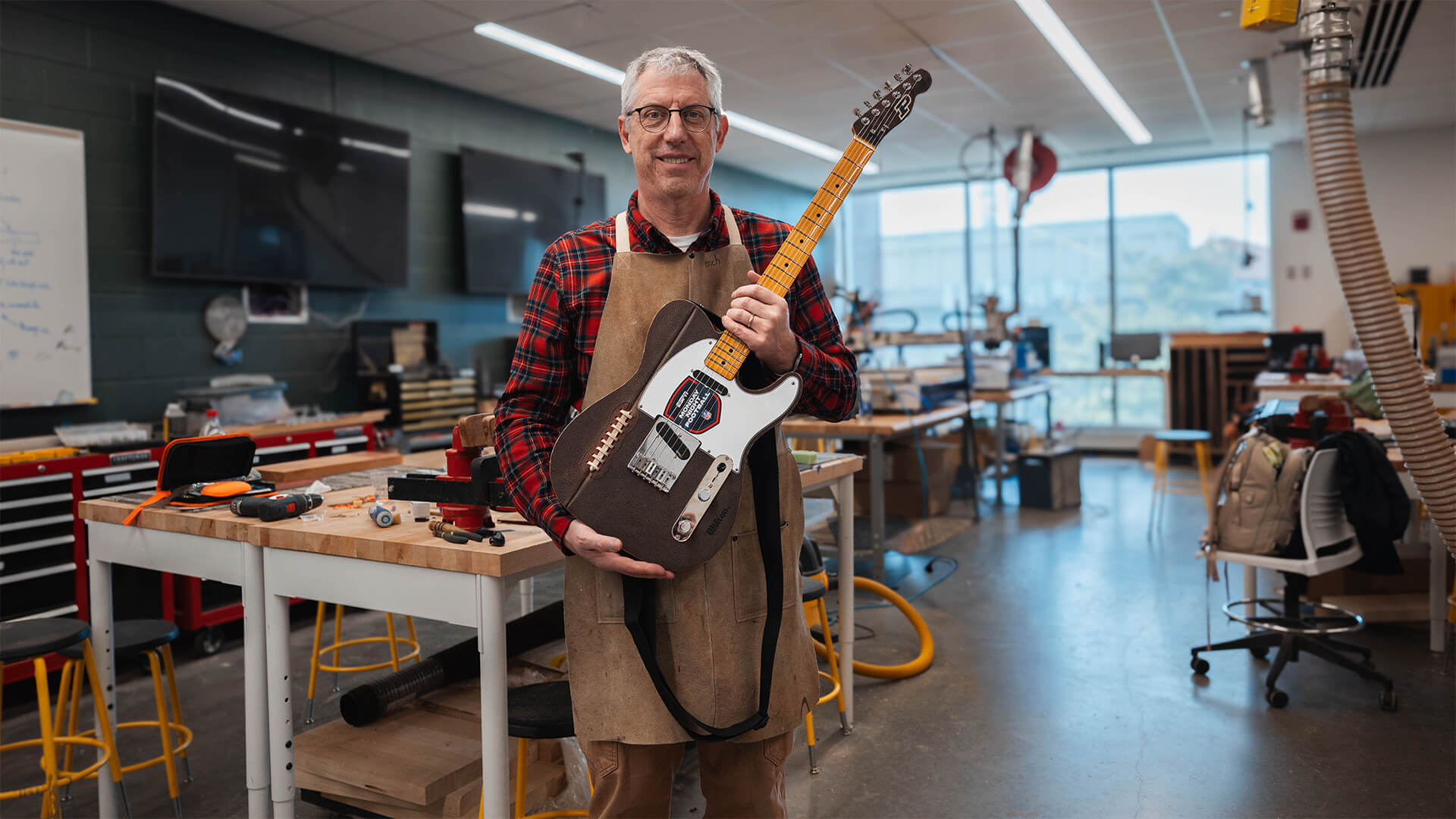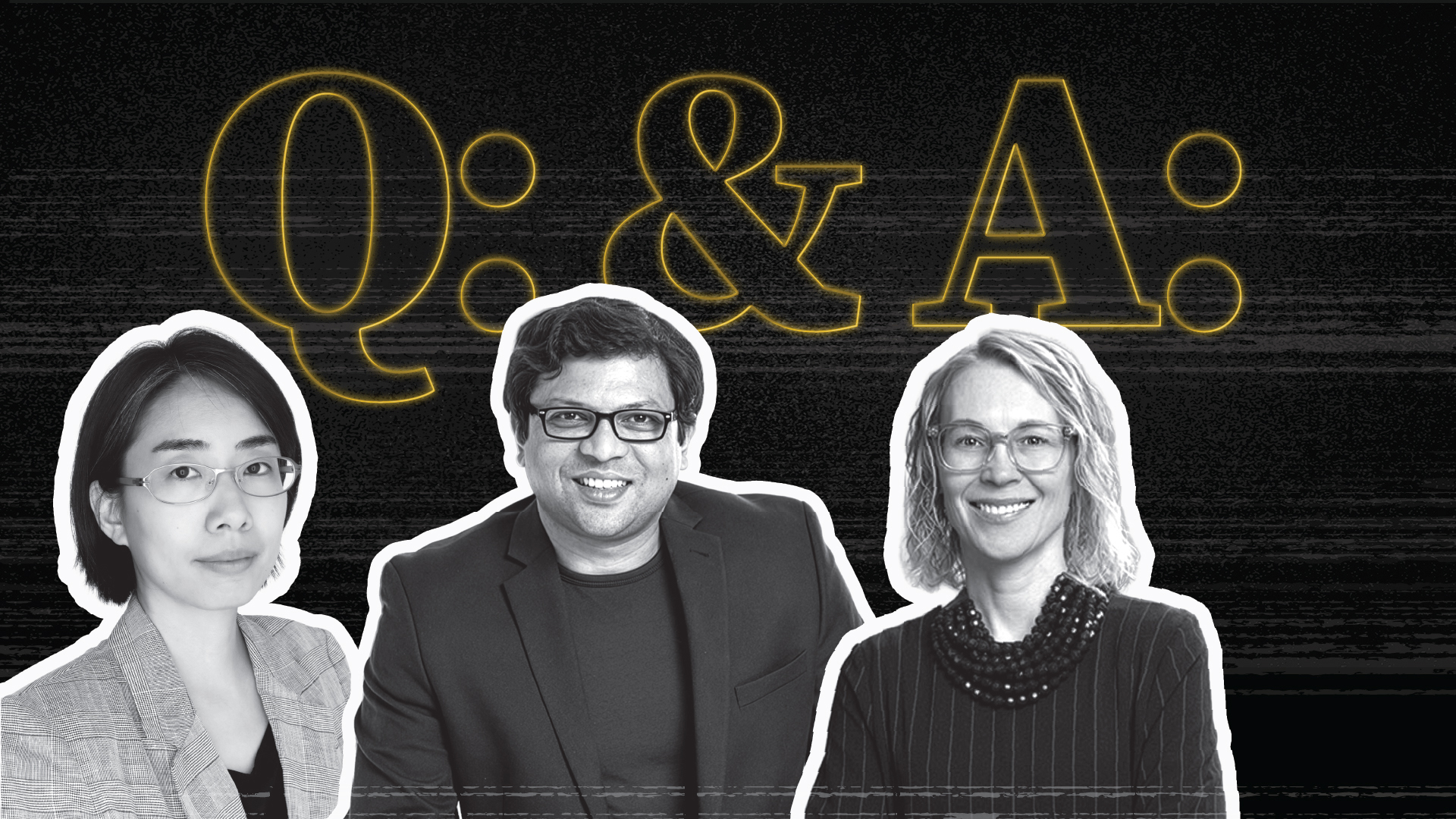Grace’s story: Determined to succeed

Grace graduates at age 19 with honors degrees in math and physics. (Photo by John Underwood/Purdue Marketing and Communications)
No one acknowledged her autism before. But Purdue had ready support.
My parents first knew I was autistic when I was 16 months old, and I got the official diagnosis when I was 2. They’ve always felt it was important for me to know what I’m diagnosed with, that it would help me understand who I am and why I have certain challenges. They didn’t want me to wonder why I might see myself as different and have no explanations for it.
In addition to autism, I’ve been diagnosed with narcolepsy and a condition called selective mutism. This is an anxiety disorder that makes it difficult for me to talk to people. I can communicate with people, just in a nontraditional manner. I need someone I’m familiar with to provide cues, both verbal and physical, to prompt me to talk to people. This often makes people question me and my abilities. But once people get to know me, I believe they quickly see that I have solid ideas and strong opinions.
I hardly understand the selective mutism myself. I don’t expect full understanding, really. I just want respect.

The part that gets me in trouble is the name, selective mutism. It’s called that because there is an inability to speak in select situations. But it’s so easy to read it wrong, like I’m selecting when to be mute. That is never the case; this is not a choice.
I manage it with an aid, usually my mom, or just some safe person I can talk to. That person prompts me to respond or speak. Why does it work? No clue. Like I said, I hardly understand it myself.
Acknowledging autism just makes it easier. It makes it easier not to be ashamed of the person I am.
Grace Bowling
Senior, Math/Physics
Public elementary schools were unwilling to offer accommodations or acknowledge my diagnosis at all, so I was homeschooled from the first grade on. I excelled at school — math and science, especially. I quickly surpassed typical high school classes and was looking for a challenge. I kept saying I couldn’t find what I wanted in online classes and that I wanted to learn from real professors.
I had also gone to see Brian Greene speak at Purdue and was fascinated by his talk. It really sparked my interest in physics and string theory. But I was only 12. I took a class at a community college and found that I still wanted more. I approached Purdue, and they agreed to let me try Calculus and see how I did. I took another semester part time and still wanted to do more. I was able to finish my high school requirements early, and Purdue agreed to accept me. I started full time at 15.

Purdue was so different. People here have supported me and helped me. The DRC has been awesome. They’ve advocated for me on so many occasions and accommodated so many things. Now, I’m graduating in May with honors degrees in physics and math and an Honors diploma from the Honors College as well. And I’m beginning my master’s degree at Purdue in physics this fall. In my time here, I’ve been recognized with several awards in math and physics, and I got to work extensively on a unique project with the Anthropology department.
Accommodations don’t always fit into a neat box. It isn’t always a private room or an increase in font size. The minute you have to click “other” on the list of services you need is when you may not get help at all. When you have to start thinking about how to accommodate somebody, some people just don’t want to help. Purdue hasn’t done that at all. They’ve been willing to figure out what works for me.
Some people treat autism and mental disabilities in general as some unspeakable horror; they don’t like it when I mention I have autism. The issue here isn’t really the word, though. Because whether you introduce me as “Grace Bowling” or “Grace Bowling, autistic person,” it doesn’t matter. I still have autism. I still have selective mutism and anxiety and narcolepsy, independent of who acknowledges it. Acknowledging it just makes it easier. It makes it easier not to be ashamed of the person I am.
This is me. I’m a Boilermaker. I’m a student at Purdue. To me, that means I’m where I want to be. I’m succeeding against all odds. There was a very real possibility I wouldn’t have succeeded at all; all it would take is one person saying no. But being a Boilermaker means I’ve found a place that is willing to work with me and not against me. Being a Boilermaker means I get to have goals, dreams and aspirations — something that, for a while, I was afraid I wasn’t allowed to have. I’ve been given the opportunity to succeed, and I promise — I’m going to.
Being a Boilermaker means I get to have goals, dreams and aspirations — something that, for a while, I was afraid I wasn’t allowed to have.
Grace Bowling
Senior, Math/Physics
